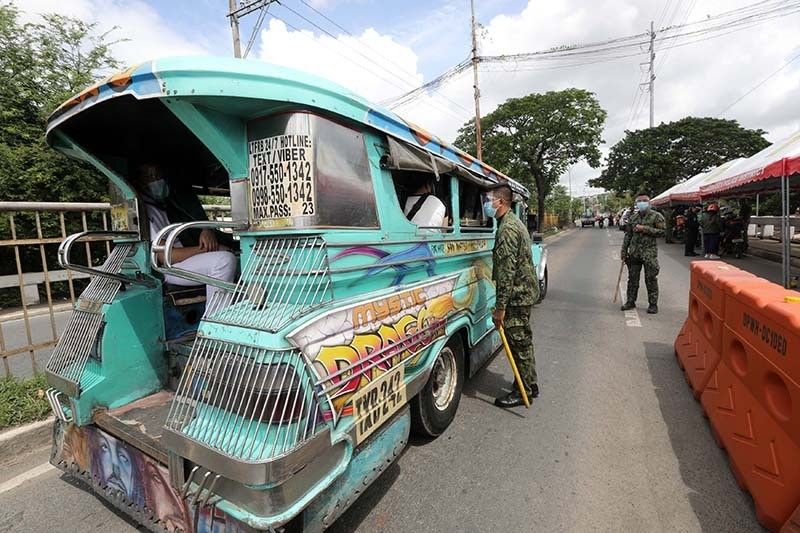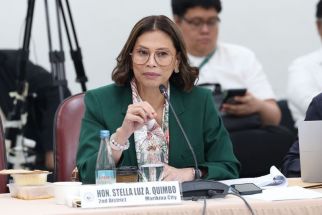PNP Highway Patrol Group ordered to assist in pilot run of increased PUV capacity

MANILA, Philippines — The chief of the Philippine National Police directed the PNP-Highway Patrol Group to assist and coordinate with the Department of Transportation regarding the 30-day pilot study of the gradual increase in the number of passengers allowed in public utility vehicles.
In a statement sent to reporters Monday morning, Police Gen. Guillermo Eleazar said that the PNP-HPG is ready to extend any form of assistance during the pilot run, aside from ensuring that minimum public health standards are strictly observed by the riding public.
“The Highway Patrol Group will work with the DOTr to support the pilot run of additional passenger capacity on our PUVs. Aside from ensuring that minimum public health standards are complied with on public vehicles, the PNP is ready to assist in other ways,” Eleazar said.
The pilot run was scheduled after the National Task Force Against COVID-19 approved the increase in operational capacity from the current 50% to 70% for public road-based and rail transportation plying Metro Manila and nearby provinces.
Traditional jeepneys will be allowed to accommodate an additional four to five passengers while modern jeepneys may accommodate standing passengers.
Public utility buses can allow standing passengers although the one-seat-apart policy remains.
'Implement COVID-19 protocols by solving the lack of transportation'
The DOTr said the pilot run would begin on November 4 to determine if public transportation can already resume full operations amid the pandemic.
READ: Allowing more PUVs will help ensure compliance to COVID-19 protocols — commuter group
Transport groups have long been calling on the national government to allow more vehicles to ply their routes to offset the effects of decreased capacity, saying more public utility vehicles on the road will help ensure that commuters comply with the quarantine rules in public transportation.
“Bus and jeepney passengers know the rules and we believe that most of them want to obey these rules. However, it is a fact that there is a supply problem in the current public transportation landscape and this is a great hindrance in how to effectively implement our COVID-19 protocols,” commuter group The Passenger Forum said in March.
“This is clearly a problem of the lack of spaces for PUV passengers and it is the reason why commuters are left with no choice but to occupy remaining seats or even bus aisles meant to be vacant for social distancing. It will be very helpful if the DOTR will give a go-signal for more PUVs on our roads,” he added.
Checkpoints for commuter safety force drivers to stay at home
As it currently stands, the PNP's Highway Patrol Group is already among the law enforcement units manning the government's checkpoints to conduct random inspections of public transportation.
On its official Facebook page, the Inter-Agency Council on Traffic proudly boasts videos of enforcers, sometimes armed, barking at passengers and drivers inside tight buses or jeeps to comply with health protocols.
It is unclear how they will implement the increased capacity rules. Drivers have said that the exorbitant rates that road marshals charge at checkpoints are enough to intimidate them into staying home.
READ: In ECQ 'bubble', checkpoints for commuter safety harm hard-up drivers
The PNP chief reminded commuters to continue observing the health protocols to prevent the spread of the virus in public utility vehicles.
“With or without plastic barriers and law enforcers, everyone’s safety against COVID-19 is in the hands of every driver and passenger. So to our fellow drivers of passenger vehicles, please don't let this new policy go to waste because you know that you will also suffer if you get caught,” said Eleazar.
"The relaxation of this policy includes the government's confidence in you that you will be disciplined and responsible for the safety of yourself and fellow passengers," he added.
- Latest
- Trending





























